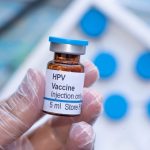Healthcare systems across the globe have been under immense pressure for many years, and never more so than during the past two years of the globally destructive COVID-19 pandemic. With increased hospital admissions, severe cases of infection, and rising death figures, it is no wonder that the industry has struggled through these unprecedented times. Throw in the ever-changing political, social and biological landscape that healthcare professionals had to navigate at lightning speed and it is clear to see why so many of our healthcare staff experienced burnout and felt fatigued.
Before the pandemic took hold and changed our lives, and health systems, forever in early 2020, there was already a significant strain on our healthcare resources with a lack of professionals across all states and sectors. The Census Bureau estimates that there are 22 million nurses, doctors, and support staff working across the US, with this being projected as a major shortfall of staff needed for optimal levels of care for our population.
In this article, we will explore the changes seen in the nursing profession in the US due to the globally felt pandemic and discuss the reasons why individuals pursue this career path despite the challenges it faces. We want to help you make informed decisions about the healthcare system and your nursing career within it, while providing helpful information on how and where to get your qualifications.
How nurses fit into the healthcare crisis
Nurses face a hard job – there is no doubt about that. Long shifts filled with uncertainty and changing procedures, ever-increasing hours clocked on the job, and pressures from internal management and patients can create a testing environment. Yet thousands of people continue to train to be nurses every year in the US. According to a recent 2022 report, there are 29 million nurses and midwives globally, with 3.9 million of those working in the US, with the need for more ever-growing year by year. Employment opportunities for nurses are growing rapidly as the need increases and trained individuals leave the profession in pursuit of different career paths or upon reaching retirement age.
As discussed in the above report, the need for nurses is growing steadily not only because people are leaving the profession, but also because of a number of factors affecting our society as a whole. These are outlined below:
- Our aging population, which creates increased pressure on the healthcare system year on year. More and more US citizens are over the age of 65, meaning that they require further access to healthcare resources as they age and are diagnosed with various diseases and ailments. Advancements in the medical procedures and a better understanding of the diseases help people live longer, resulting in them requiring longer care, which is potentially is more complicated and specialist.
- An aging workforce goes hand in hand with an aging population, with a workforce that is also getting older meaning that there are fewer and fewer people over time in employed roles. The percentage of those who go into nursing overall is relatively low, so fewer and fewer individuals are trained to fill those roles. This is even more of a concern in specialist areas.
- With the majority of nurses across the world still being female, this poses another effect during their child-bearing years. When they have children, they usually reduce their hours to a part-time schedule, leave the profession to raise their families, and potentially never return afterwards.
- Fewer individuals are entering the nursing field in the first place. And with the rise of online and remote roles pulling people away from more ‘traditional’ jobs located in one place, there are fewer high-school graduates pursuing careers in healthcare in favor of working online, traveling more, and being more location independent.
- With increasing tuition fees and rigid timetables at brick-and-mortar universities, some potential students are put off from further study at these institutions as it isn’t flexible enough to fit around their already busy lives.
These combined aspects have had a fundamental impact on many industries just as they have on nursing and other healthcare professions. It is something that will need to be navigated and managed by governments globally as we emerge from the COVID-19 pandemic and as the healthcare industry creates new working practices and policies. Encouraging and incentivizing individuals to train as nurses is a major step to ensuring that we have a new generation of healthcare professionals.
How the nursing profession has changed since the pandemic
Many of us, regardless of our professions, had to adapt, pivot, and change our working behaviors during the pandemic to ensure that we were being efficient, timely in our reactions, and the most effective in our roles as we could be. This was all the more true for individuals working in the healthcare system during this time. Nurses, like doctors and their support and admin staff, were put under increasing pressure to perform harder, work smarter, and adopt new procedures and protocols on a daily, if not hourly, basis.
There were multiple questions raised about highly qualified nurse practitioners being given more autonomy and authority to widen their scope of work so that they could undertake more advanced procedures and help patients and colleagues in the most effective way. This has had a lasting effect as the conversation continues to push the boundaries that were previously set and the roles that nurses on all levels have performed for years are reevaluated and enhanced. Whether the nurses welcome these changes is a different conversation, but what is certain is that the healthcare system and the roles that people play within it have changed and will continue to do so for many years to come.
The use of technology in the healthcare system for online training, information, and knowledge sharing during advancements of the virus and the rollout of virtual appointments has changed the landscape in which nurses, and their colleagues, work. The uptake in these advancing technologies and procedures by healthcare professionals, including nurses, helped massively in cross-state communication and meant they could assist each other more effectively while creating a more efficient working environment and procedures along the way.
Why should you pursue nursing as a career path in 2022 and beyond?
Despite the difficulties facing the profession, nursing is still a highly respected and extremely rewarding job, and there are still thousands of people a year who want to train to be a nurse and actively pursue this as a viable career option. So, what are the motivations for them to continue in the healthcare system in the US? A major aspect of nursing is the care they provide. Nurses are caring individuals. Caring for others in need brings them a sense of accomplishment and reward that you don’t find in many other professions. Those with a caring nature want to help. They want to make people’s lives better and ensure that they have the care they need while facing a time of uncertainty, fear, and potential confusion.
Ultimately, there will always be individuals who care and want to enter and advance into the healthcare system, and luckily for them (and all of us!) there are plenty of routes into this industry that are enjoyable, rewarding, and lead to great opportunities for career satisfaction. Below, we have outlined more information on the different routes into the nursing profession and the resources where you can find more clarity to help you make an informed decision on the best route for you, along with how this career can benefit you.
The positives of becoming a nurse in the US health system
There are many fantastic reasons to become a nurse in a post-pandemic world. These are summarized below:
- Earning a stable income – nursing provides excellent job security as it is a role that will always be in demand.
- Feeling a sense of purpose in your work – caring for people and helping them in their time of need is very rewarding and has a strong pull on our sense of purpose as human beings.
- There is a great range of benefits, including but not limited to paid time off, health and life insurance, reimbursement of tuition and certification fees, retirement perks, childcare support, and wellness programs.
- It has a flexible schedule to fit around your other family and life commitments – shift work can be tough, but it is anything but boring and repetitive. No 9-5 schedule here.
- There are multiple career avenues to pursue – some examples are working in a school or college, traveling with your work within the US or further afield overseas, or providing home care to the sick and elderly.
- You can specialize in what interests you and gain valuable knowledge and experience – you could even pass this on by training other nurses in your expert field.
- You’ll never think about what to wear for work again – scrubs all round and comfortable shoes are a necessity!
How can you become a nurse in the US in a post-pandemic world?
If you are looking to become a nurse in the healthcare system in the US and care for people in need, then there are clear routes into the profession. There are many pathways to becoming a qualified nurse, as outlined below:
- LPN/LVN (Diploma or Certificate) – one year
- ADN (Associate Degree in Nursing) – two years
- BSN (Bachelor of Science in Nursing) – four years
- MSN (Master of Science in Nursing) – two years
- DNP (Doctor of Nursing Practice) – three to four years
These options can take between one and four years to complete and have the potential to lead to a variety of different roles within the nursing category, including:
- Licensed practical nurse
- Registered nurse
- Advanced practice registered nurse
- Healthcare executive
If you opt for a two or three-year degree, you can, of course, become a registered nurse more quickly, with a full bachelor’s degree usually taking four years to complete. From there, you can study further educational courses to obtain a master’s degree. This can lead to higher-paying roles in more specialist fields, so the path you choose depends somewhat on your ultimate goal, along with where you are starting your journey from.
Choosing a degree that’s right for you – a step-by-step guide
With so many great institutions providing nursing qualifications across the US, it can be a little overwhelming to start the process. Establish what is important to you while you are picking a school and degree. There are many things to consider, but if you take a systematic approach, then you will find that it is easier to make this big decision. Ask yourself the following questions to help you on your way to choosing the right path for you:
- What do you want from your program? What is the length of the course, and what are the options for specialisms?
- How do you want to learn? Online, in-person, or a mix of both?
- If you want to learn in person, does the location matter? Visit as many schools as you can to help you narrow it down.
- Where do the schools rank?
- How will you fund your degree? Do you need financial aid? Some programs aren’t eligible for support, so be sure to clarify this early.
- Are there any financial incentives for certain specialisms or areas? Can you be reimbursed once you have trained?
Study for a master’s degree to advance your career options going forward
There are many fantastic institutions providing master’s degrees to advance you onto the path of becoming a nurse in a specialist field. However, if you are already in work and looking to gain a master’s degree, then stopping everything and potentially moving across the country to study is often not a possibility. For individuals who want to gain additional higher education but may be struggling to fit it into their already busy lives, an online degree such as the MSN-FNP program at Rockhurst is a great option. This type of course gives students the flexibility and autonomy to study where and when they want, and also offers full clinical placements.
Why there will always be a need for more staff in nursing in the US
It’s a common and somewhat sad fact of life that we will all need to go into hospital or have some support and help from nurses during our lives. However, knowing that these individuals are highly trained, compassionate in nature, and always there to depend upon if needed is ultimately very reassuring and brings comfort to millions of people around the world every day.
There will always be a need for nurses and other healthcare staff as we grow older as a population and the workforce therefore ages with it. Your expertise as a nurse will always be in demand as we tackle new viruses and battle trauma, diseases, and accidents. There are many things that a robot or computer can do, but caring for someone in the most basic of human ways is not one of them. Caring for others is an innate human response that we seek to fulfill, whether it be with our own families or friends or with strangers who reach out to us in times of need.
Pursuing a career in nursing is regarded very highly in our society, and more so than ever after the trying times of the COVID-19 pandemic. The strain that the healthcare system across the country feels cannot be solely alleviated by more nurses, but as the lynchpin of health in our nation’s care homes, hospitals, and our education system, they do provide a highly important and essential service to us all. This is something that we cannot take for granted, and it is something that we cannot do without. If the pandemic has shown us anything, it is that human connection and the care that we feel for one another is unwavering, much needed, and a staple characteristic of any nurse you will encounter during your life.








